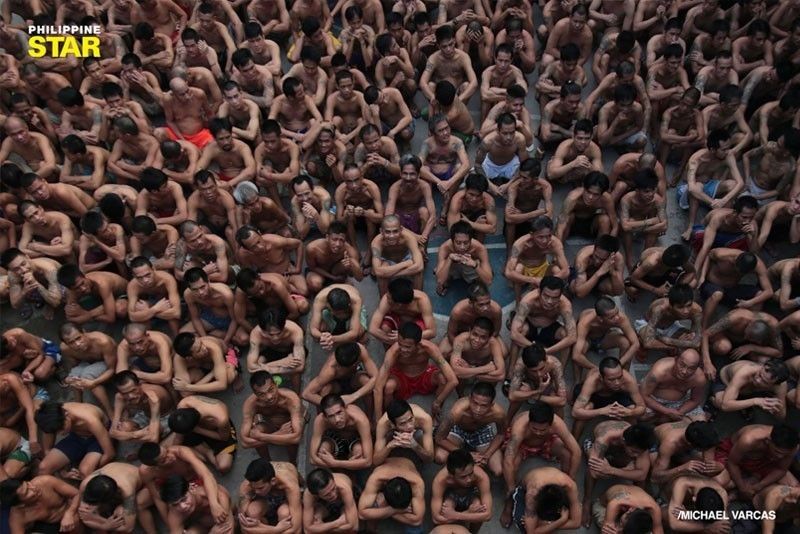A Head-Start on Killing 100,000 Criminals
"The one-million prize is available to those who can capture them dead or alive."
"But maybe dead would be a better option. I will pay you smiling."
Philippines President Rodrigo Duterte
"'Dead or alive' should not be taken literally."
"Law enforcers are supposed to effect peaceful arrests, but they may use reasonable force if the subject of the arrest violently resists."
"We want to make sure that those remaining are actually people that need to be arrested."
"We find it prudent to pause for a while, tally the count and make sure those who surrendered are those on the list."
Philippines Justice Secretary Menardo Guevarra
![Philippines police told to stop manhunt after Duterte reward Duterte had offered prize money for each felon released by the government in a botched programme [File: Damir Sagolj/Reuters]](https://www.aljazeera.com/mritems/imagecache/mbdxxlarge/mritems/Images/2019/9/20/6137c5653ef04434ac1f63a20a8cb063_18.jpg) |
| Duterte had offered prize money for each felon released by the government in a botched programme [File: Damir Sagolj/Reuters] |
The Philippines has some of the world's most crowded jails. To address that problem the administration in power prior to that of Mr. Duterte passed a 'good conduct' law in an effort to reduce the jail population in the country. The good-behaviour reward program recently resulted in the release of a staggering number of prisoners in Philippine prisons. Over 1,700 criminals were mistakenly released alongside thousands of other prisoners, but the 1,700 represented those found guilty of seriously violent offences.
When the error was discovered, the crime-busting President Duterte offered a million pesos ($25,000) prize for tracking down each of those violent convicts remaining at large. Initially just under 700 of the erroneously-released prisoners had responded to the president's call to surrender. As a former mayor and prosecutor who once boasted of a plan to kill up to 100,000 criminals once he became president, Duterte is livid with rage over the release of rapists, drug pushers, killers.
As president he has attained notoriety for allowing police full rein to do as they wish when encountering what they claim to be drug traffickers. His "war on drugs" has caused police to kill thousands of urban poor dealers and users, killings considered executions according to rights activists. His inciting of vigilantism has drawn many criticisms, but he shrugs them all off, claiming tough talk like his is popular with millions of Filipinos.
And he is president, duly elected by Filipinos who expressly wanted an end to the rampant crime fuelled by drugs, so perhaps the manner in which he gauges his reputation with the ordinary person on the street is fairly accurate. Over 21,000 prison inmates had been released, with over two thousand of that number sentenced for crimes of rape, drugs, murder, bribery, plunder, kidnapping and arson making them obviously ineligible for release.
Two of Duterte's own appointees of the prison sentence were responsible through the corrections bureau, loyalists both, for the freeing of the 1,700 who failed to qualify for release.
 |
| When Duterte first ordered the released inmates through GCTA law to
surrender, he warned they should turn themselves in or they would be
treated as criminals. “Well, you know, things can go wrong,” he said on
September 4.
The STAR/Michael Varcas, File
|
Labels: Criminals, Crisis Management, Duterte, Philippines, Prisons

<< Home